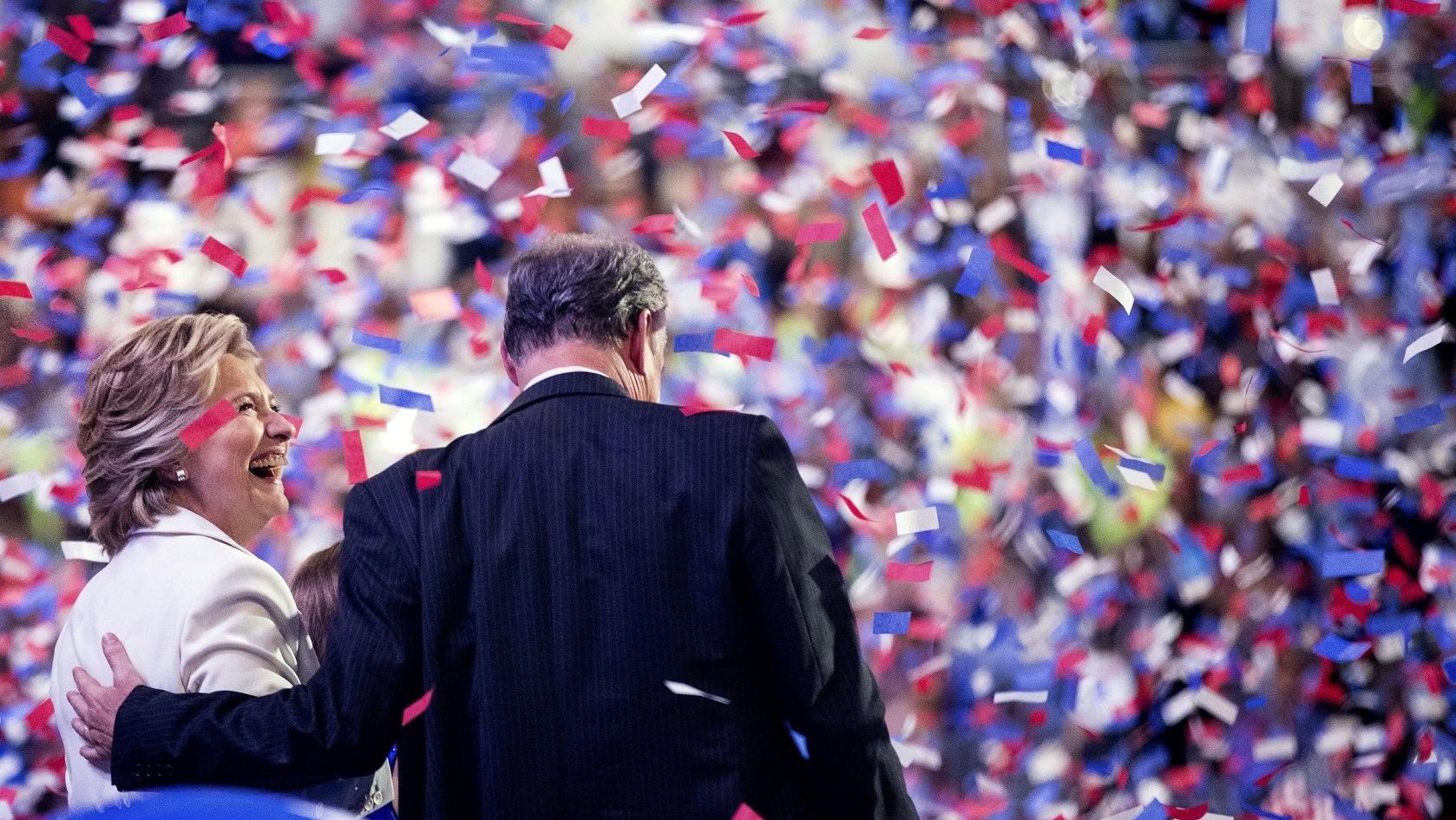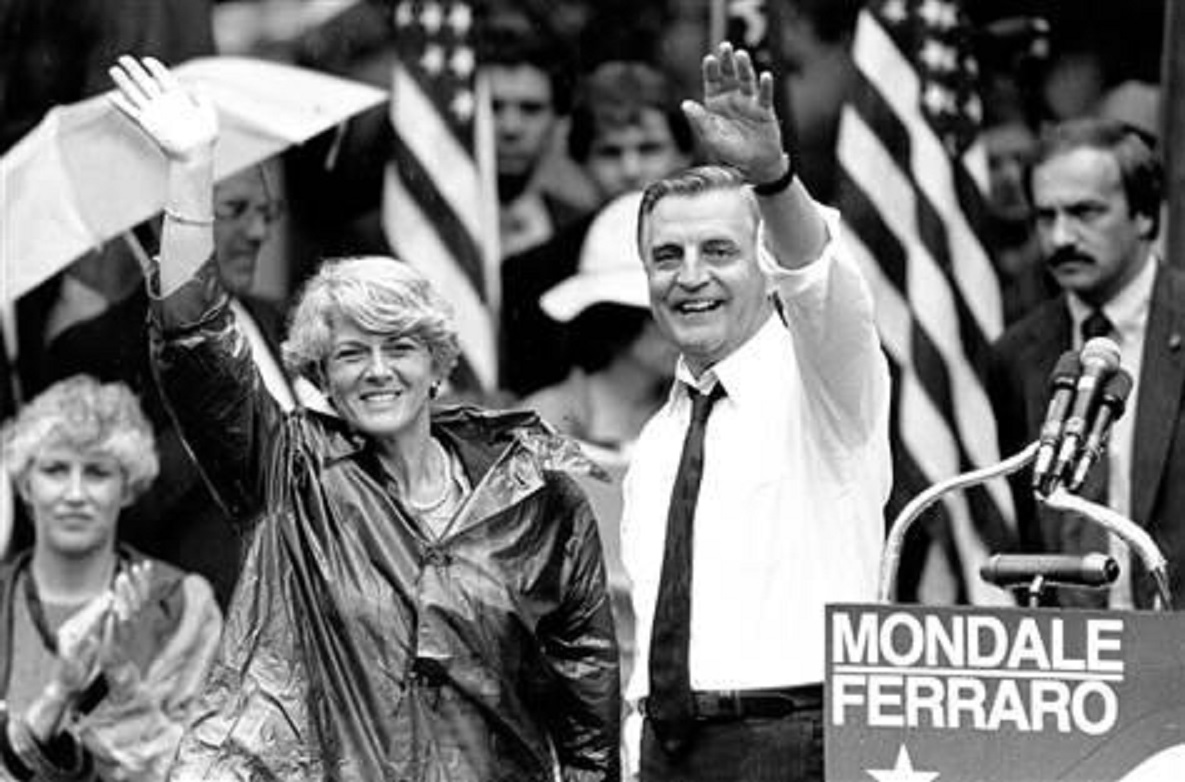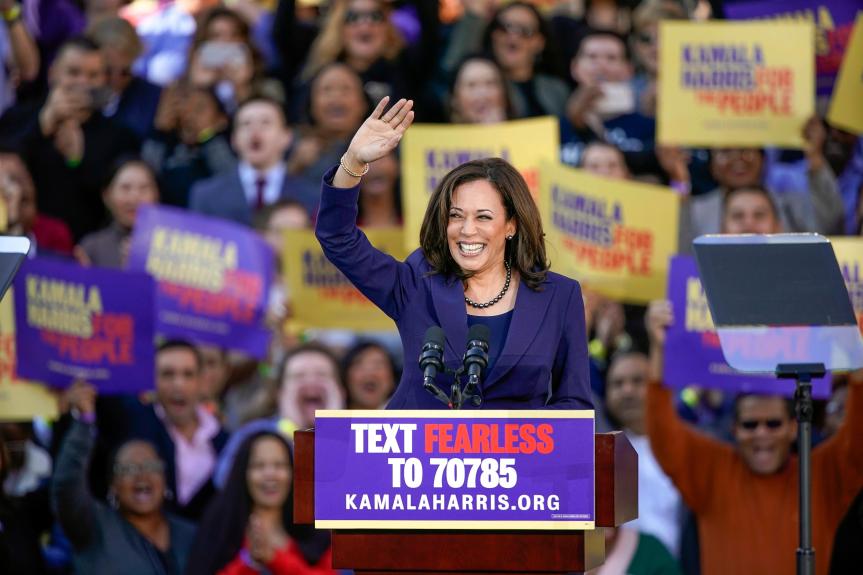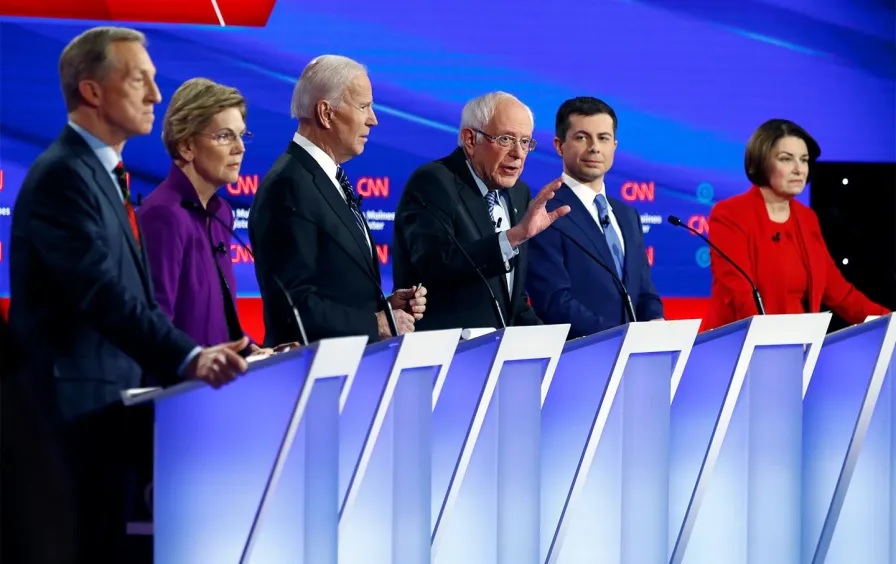
Hillary Clinton and Tim Kaine stand on stage amid celebratory balloons and confetti on the last day of the Democratic National Convention in Philadelphia, July 28, 2016. /AP
Hillary Clinton and Tim Kaine stand on stage amid celebratory balloons and confetti on the last day of the Democratic National Convention in Philadelphia, July 28, 2016. /AP
Even before presumptive Democratic nominee Joe Biden announced Kamala Harris as his running mate, political commentators agreed: whichever woman he picked would face more scrutiny than perhaps any U.S. vice-presidential candidate before.
Unlike other major countries, the U.S. has never had a woman as president or vice president. Hillary Clinton in 2016 was the first woman nominated by a major party to run in a presidential election. Harris is only the third woman to be a vice-presidential nominee.
So why has it been so hard for women to break through the glass ceiling in U.S. politics?
Out of reach
Although politics has long been a male-dominated sphere, dozens of countries over the past few decades have opted for a female head of state or government: from India, Israel and the UK to Germany, Chile, Pakistan, Australia, the Philippines, Liberia or Lithuania.
The percentage of women in parliament worldwide has grown steadily in the last 20 years. And in the 2018 midterms, a record number of female candidates won seats in the U.S. Congress.
But the top two jobs in government have until now remained out of reach. Hillary Clinton lost to Donald Trump in 2016 despite winning the popular vote. And only two women have previously entered the election as a vice-presidential candidate: Geraldine Ferraro, alongside Democrat Walter Mondale in 1984, and Sarah Palin, Republican John McCain's running mate in 2008.
Double standards
Female candidates have often said they are held to higher standards than their male counterparts when running for office.

Vice-presidential candidate Geraldine Ferraro and presidential candidate Walter Mondale wave at a rally in Portland, Oregon, September 5, 1984. /AP
Vice-presidential candidate Geraldine Ferraro and presidential candidate Walter Mondale wave at a rally in Portland, Oregon, September 5, 1984. /AP
In a 2017 Vox interview, Hillary Clinton noted she could not have gotten away with the big ideas but vague plans that Trump and her Democratic opponent Bernie Sanders had promoted during their campaigns: "I would have been hammered all the time: how are you going to do that? how are you going to pay for that? and where is the money going to come from?'"
Yet, she was also criticized for being "over-prepared" during debates. Elizabeth Warren, one of the last candidates left standing in this year's Democratic race, was known for her detailed plans on everything from healthcare to student debt and even COVID-19, but was also mocked for them.
Even a simple pneumonia turned into a scandal for Hillary Clinton in 2016, with Trump using this to attack her stamina, whereas news last October that Sanders had had a heart attack and had to undergo surgery created far less hysteria.
During the 1984 campaign, Ferraro was asked if she could bake a blueberry muffin but also "could you push the nuclear button?" – a question she said she would not have been asked if she were a man.
The 'likeability' factor
With every word and gesture picked apart during a presidential election, female candidates are required to do a balancing act between being tough and showing warmth; asserting themselves and appearing competent, yet not coming across as bossy or arrogant.
A 1984 profile of Ferraro explained why she was an ideal candidate: "Attractive, but not beauty-pageant beautiful … Charismatic. Forceful, but not overbearing ... At ease in the old-boy network."
Throughout the latest Democratic race, the issue of likeability was constantly brought up – by political commentators, the media and voters – with regards to Warren and her female rivals Harris and Amy Klobuchar, a problem their male colleagues did not have.
Klobuchar was said to be a difficult boss. Pundits described Warren as "preachy,""angry" and "moralizing." Hillary Clinton in 2016 was criticized as aloof and cold.
This matters, because "voters will not support a woman that they do not like, even if they believe that she is qualified," Amanda Hunter, research and communications director at the Barbara Lee Family Foundation, told The New York Times. "But they will vote for a man that they do not like if they believe he is qualified."

Senator Kamala Harris waves to the crowd as she formally launches her presidential campaign at a rally in Oakland, California, January 27, 2019. /AP
Senator Kamala Harris waves to the crowd as she formally launches her presidential campaign at a rally in Oakland, California, January 27, 2019. /AP
The problem is that mudslinging and attack ads are part and parcel of a presidential election. "How does a woman stand up for herself on the biggest stage in the world without ... looking aggressive, maybe a little bit angry?" Hillary Clinton noted in an interview last year.
Too ambitious
Nobody runs for the presidency without a large dose of ambition, yet this has been seen time and again as as a fault in female candidates.
Over the past few weeks, it has been used as an argument against naming Harris as Biden's running mate.
CNBC and Politico cited people close to the campaign who felt she was opportunistic and "would be running for president the day of the inauguration," instead of doing her job as vice president.
A number of voters in 2016 said Hillary Clinton could not be trusted "because she'll do anything to win."
In a letter to top U.S. media outlets last week, leaders of women's groups like Emily's List, Time's Up and the National Women's Law Center, urged newsrooms to stop perpetuating sexist stereotypes about women by constantly focusing on female candidates' looks, relationships, electability and doubts about their qualifications.
They also criticized "reporting on a woman's ambition as though the very nature of seeking political office, or any higher job for that matter is not a mission of ambition" and "reporting on whether a woman is liked ... as though it is news when the 'likeability' of men is never considered a legitimate news story."
Traditional sexism
In 2016, while the presidential campaign was in full swing, a PRRI/The Atlantic survey found that 39 percent of people believed that "society is better off when men and women stick to the jobs and tasks they are naturally suited for."

Democratic presidential candidates Tom Steyer, Elizabeth Warren, Joe Biden, Bernie Sanders, Pete Buttigieg, and Amy Klobuchar participate in the seventh Democratic primary debate in Des Moines, Iowa, January 14, 2020. /AP
Democratic presidential candidates Tom Steyer, Elizabeth Warren, Joe Biden, Bernie Sanders, Pete Buttigieg, and Amy Klobuchar participate in the seventh Democratic primary debate in Des Moines, Iowa, January 14, 2020. /AP
Meredith Kelly, a Democratic strategist who has worked on several campaigns, put it more bluntly, telling Vox: "Male candidates have the benefit of being judged by their potential for greatness, and women have to bring receipts."
Sexism in the campaign remains a "trap question" for female candidates, Warren noted in March: if they talk about it, they are labelled as complainers; if they do not, they are seen by female voters as not credible.
The glass cliff
But one thing may work in Harris's favor in November's election: the glass cliff. This is the idea that women get more opportunities in times of crisis, when the chances of failing are higher.
"(In a crisis) men are less likely to put their hands up," according to Blair Williams, a politics lecturer at Australian National University. "They know they can be viable for those positions when it's safer. But the chances are less there for women, they don't have as much luxury in choosing when they can run for these leadership positions," she told Australia's ABC.
Women leaders in countries like Germany, New Zealand and Finland have already won praise for handling the COVID-19 crisis better than their male counterparts.
Come November, the U.S. will get another chance to shatter the glass ceiling for women in politics. But it is still far from a sure thing.